26 November 2024
On November 26, 2024, the French Federation for Company Sport (FFSE) and the French National Olympic and Sports Committee (CNOSF) organized a European conference in Paris as part of the Work, Move & Perf (WMP) project. In addition, the event brought together around 50 participants, including sports professionals, business leaders, practitioners, and representatives from European organizations. The primary goal was to collectively explore the links between workplace physical activity, productivity, and organizational performance.
Opening Remarks: The Stakes of Workplace Physical Activity
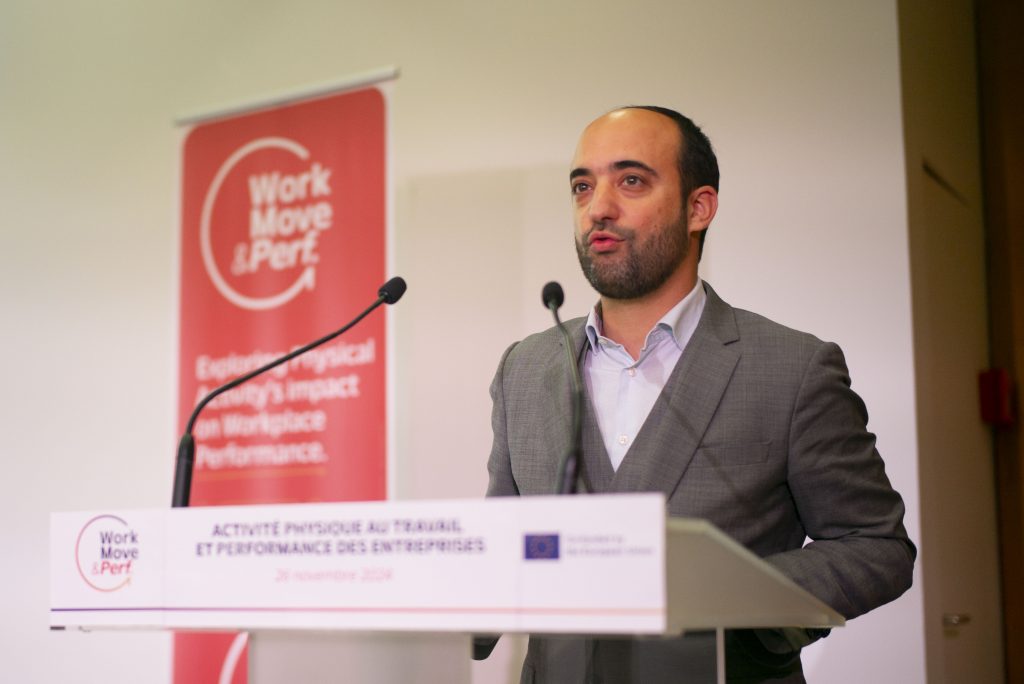
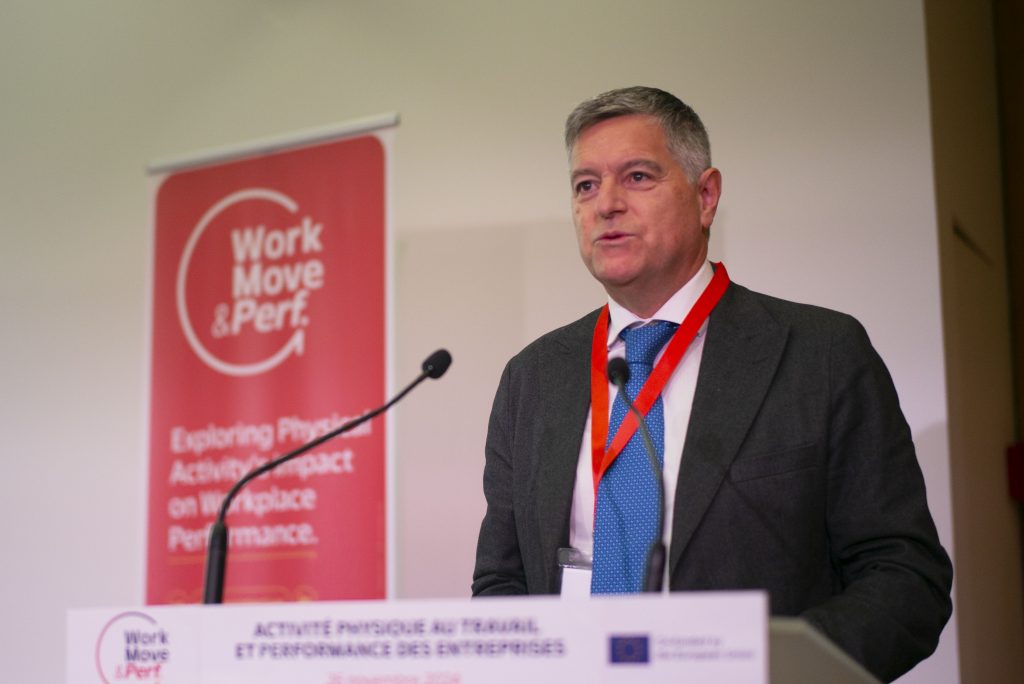
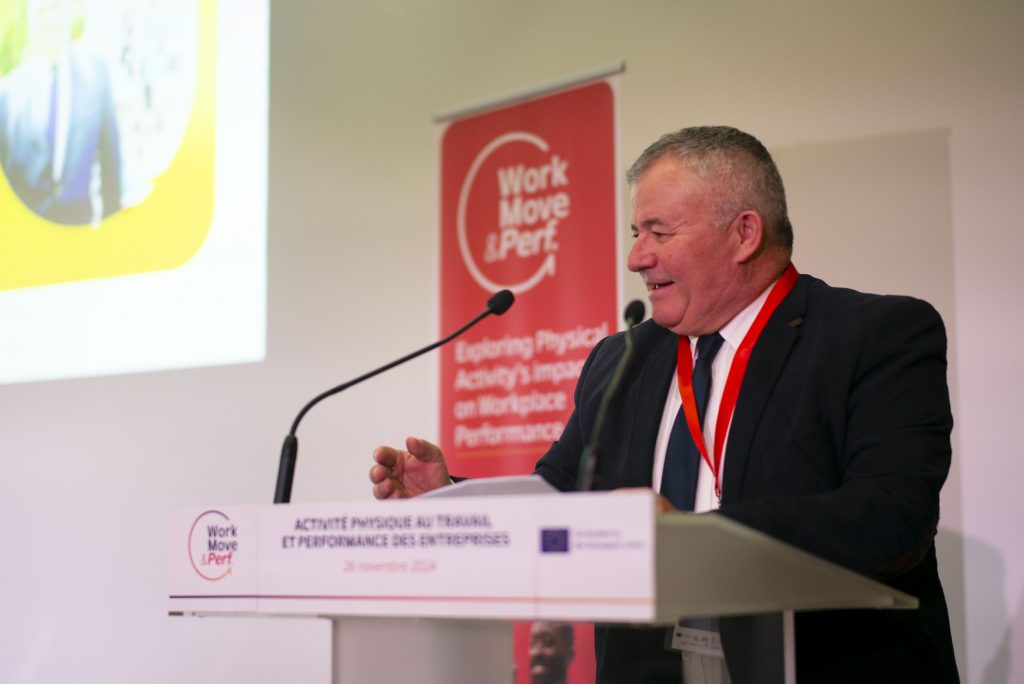
Presenting the “Work, Move & Perf” Project First Results
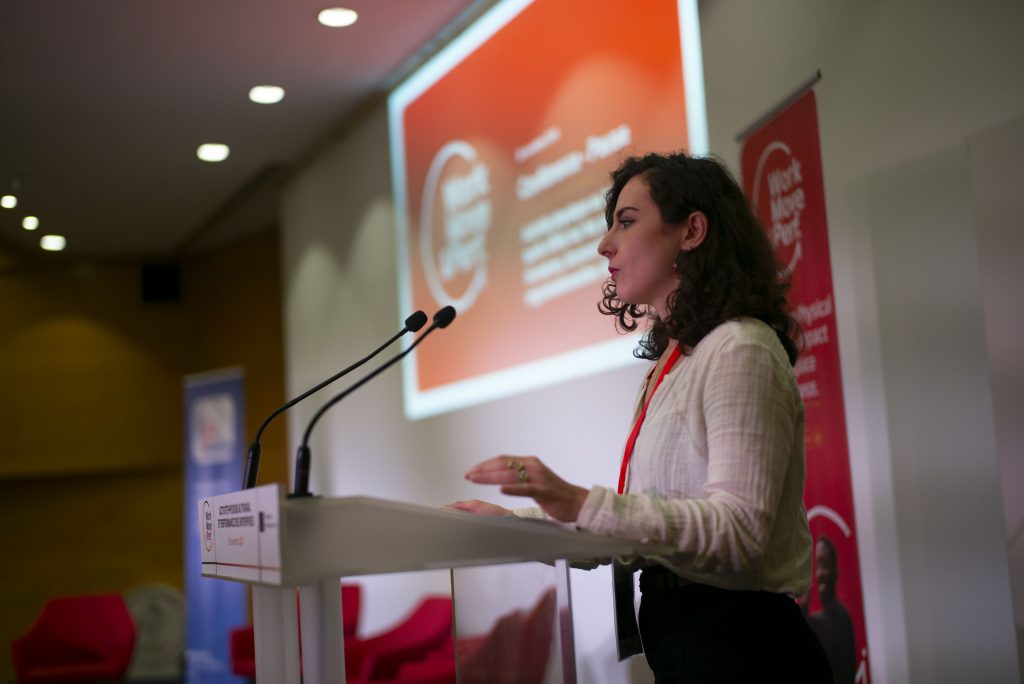
Charlotte Frueh-Richardot, the Project Coordinator, presented the WMP project’s objectives:
- Studying the links between physical activity and productivity at the European scale,
- Evaluating the profitability of workplace sports programs,
- Providing actionable data for public and private decision-makers.
Salvador Angosto Sanchez (PhD), shared scientific insights from quantitative and qualitative studies conducted by the universities of Murcia and Copenhagen, revealing emerging trends.
A European online survey was also launched to gather data on well-being, job satisfaction, and physical activity habits.
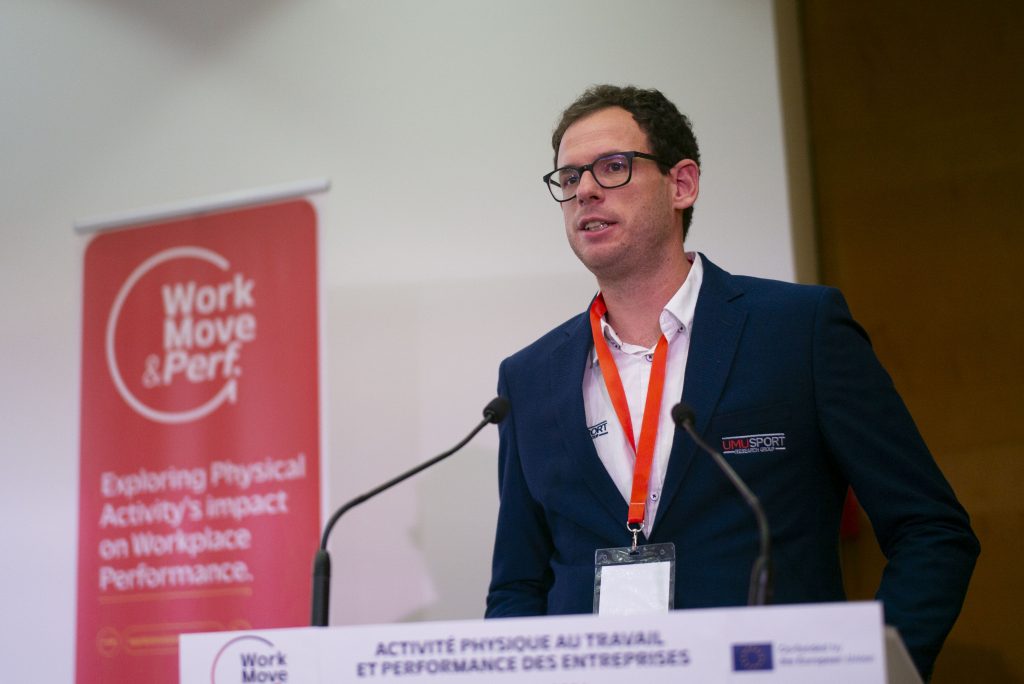
Qualitative study conclusions
- Workplace PA studies linked to productivity have received some attention from researchers.
- There is a lack of agreement among researchers on PA intervention programs, as well as on the evaluation of physical activity itself.
- The evaluation of productivity WP has not shown the use of a common tool either.
- The results found in the different studies show large discrepancies on the effectiveness of PA in improving employee productivity.
- The results of studies conducted in Europe and Oceania show a greater number of studies with positive and significant of PA in employee productivity.
- Multiple studies have reported that PA interventions begin to be effective at 12 months.
Quantitative study conlusions
- Productivity a complex, yet often ill-defined concept.
- PA in the workplace can have many positive effects (although not always and in the same ways).
- These positive effects are likely to lead to increased productivity – but this is often an assumption, rather than a proven link.
Panel Discussion: The Olympics as a Catalyst for Company Transformation
A panel of four experts from the sports and business sectors discussed the legacy of the Paris 2024 as a driver for integrating sports into company strategies.
Thierry Millet, Head of the “GOJO-P 92” business club at the Hauts-de-Seine Chamber of Commerce, introduced a project inspired by the legacy of the Paris 2024 Olympics. This network, connecting over 850 business leaders in the region, is built on sports values. It offers diverse activities open to all, such as basketball tournaments, 24-hour charity challenges, and relaxation workshops. Moreover, these events promote networking and collaboration, positioning sports as a powerful tool for regional and collective engagement.
Marie-Cécile Tardieu, Deputy CEO of Business France, emphasized the strategic role of sports in boosting France’s international competitiveness. Initially leveraged for major sporting events, sports
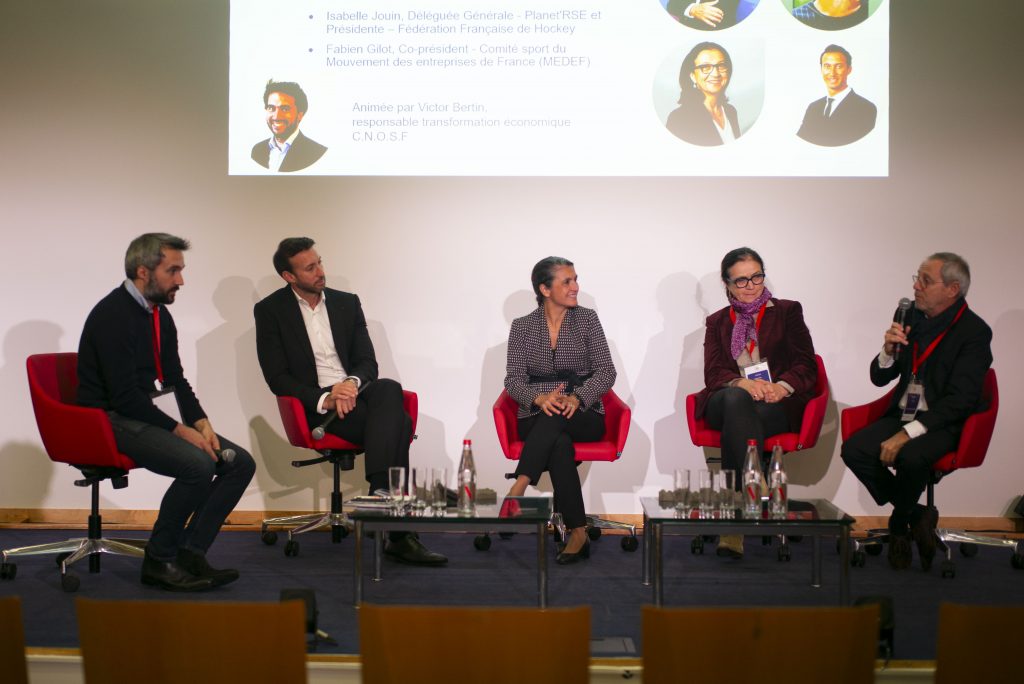
are now embedded in the agency’s internal strategies. She stressed the importance of inclusive and accessible initiatives tied to key social issues like disability, diversity, and environmental sustainability. Furthermore, she highlighted the need to address workforce challenges, particularly work-life balance. The proposition is to create opportunities for employees to engage in family-friendly physical activities.
Isabelle Jouin is the General Delegate of Planet’RSE and President of the French Hockey Federation. Morevoer, she highlighted the synergy between sports, CSR (Corporate Social Responsibility), and non-financial reporting. She explained how sports strengthen organizational identity and support local sports clubs. However, she noted a significant challenge: small and medium-sized enterprises (SMEs) face difficulties accessing sports infrastructure and pooling the necessary resources.
Fabien Gilot, Olympic medalist and representative of the Movement of French Enterprises (MEDEF), outlined sports-driven initiatives developed since Paris’s bid for the 2024 Olympics. Through its Sports Committee, MEDEF has created tools to help businesses integrate sports into their strategies. One standout example is the inter-company challenge “Faites vos jeux en entreprise” (Game On at Work), launched in 2023 in partnership with the French Ministry of Sports, SPART, and the French Federation for Company Sport.
Success Stories: Company Initiatives Driving Change
The successful implementation of workplace sports projects often involves various stakeholders. The overview is including management, HR, CSR departments, employee associations, or works councils.
Three company associations shared their experiences during the conference:
- Airbus Staff Association, represented by Christian Morin, Executive Vice President.
- BPCE Sports Group, represented by Philippe Dubois, President, and Valérie Perrière, National Secretary.
- Sports Association of the Bank of France, represented by Virginie Fajon Ouadraogo, who highlighted a recent intersite sports event.
Nathalie Cara, Workplace Environment Manager at Manutan, shared her company’s strategy of embedding sports initiatives into HR policies, demonstrating their impact on workplace culture, talent retention, and team engagement.
Despite the observed benefits, companies stressed the need for better evaluation of their initiatives’ impact, which is often hindered by a lack of resources, time, or interdepartmental coordination.
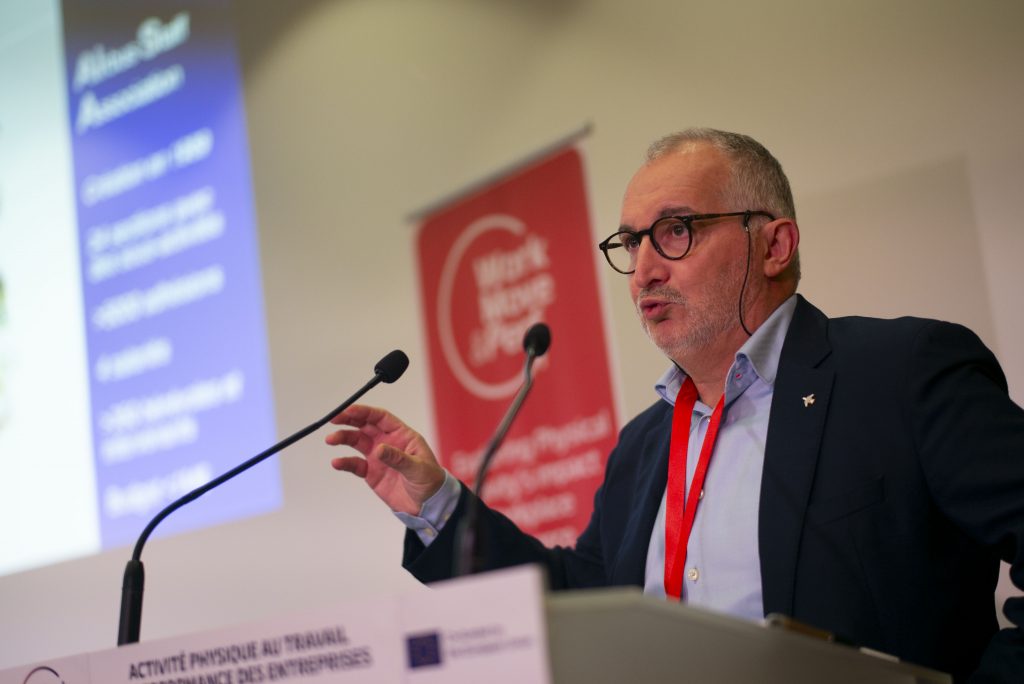
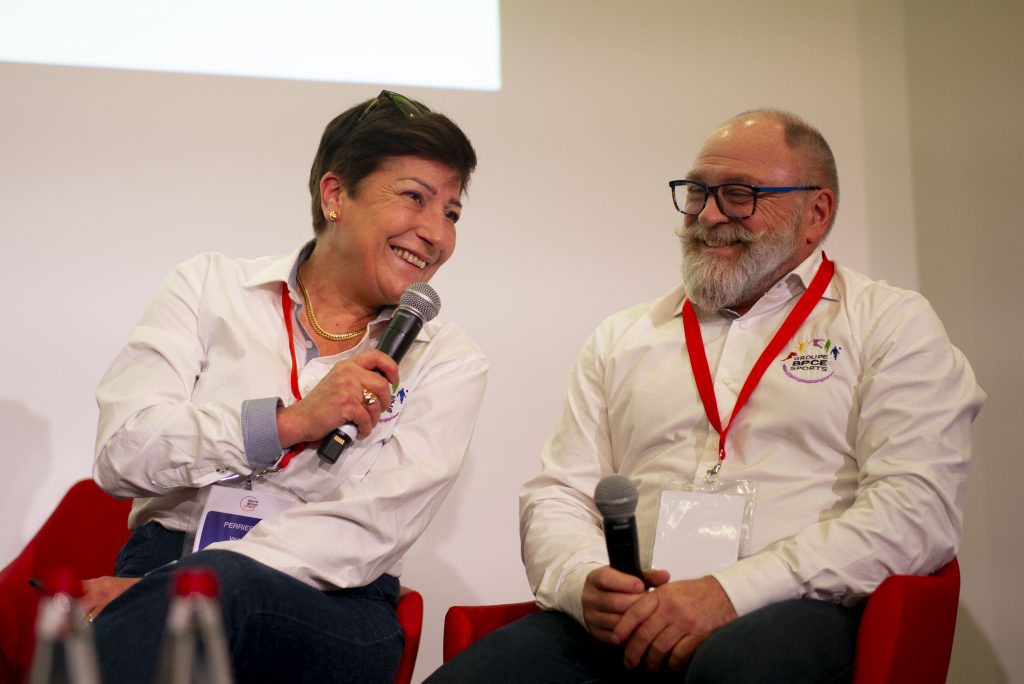
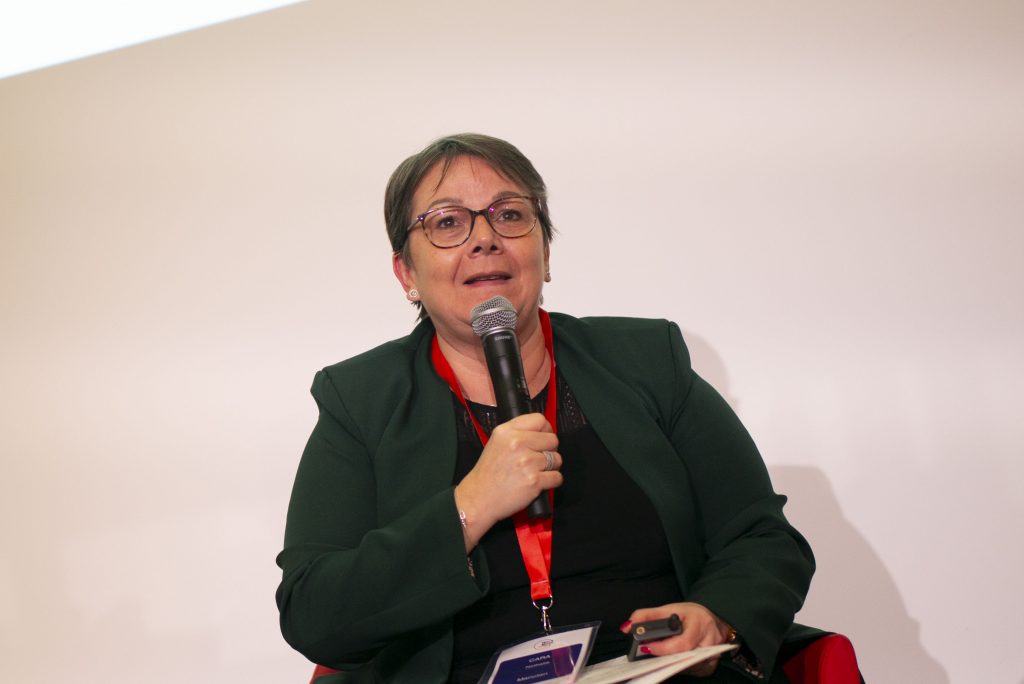
Economic Impact Calculator for Company Sports
In conclusion, Steven Naraynen of MEDEF introduced an Excel-based ROI calculator for sport policies at workplaces. This tool (in French) allows companies to measure the economic and human benefits of physical activity programs on their teams.
Physical Activity at Work: A Win-Win Strategy
The conference showcased the tangible benefits of physical activity in workplace productivity and well-being. It also paved the way for broader recognition and support of such initiatives among public and private decision-makers.
Take the Survey: Physical Activity at Work as a Performance Driver
Take the Survey: Physical Activity at Work as a Performance Driver
Be part of our quantitative study on the connections between physical activity, well-being, and workplace performance by completing our 10-minute online survey.